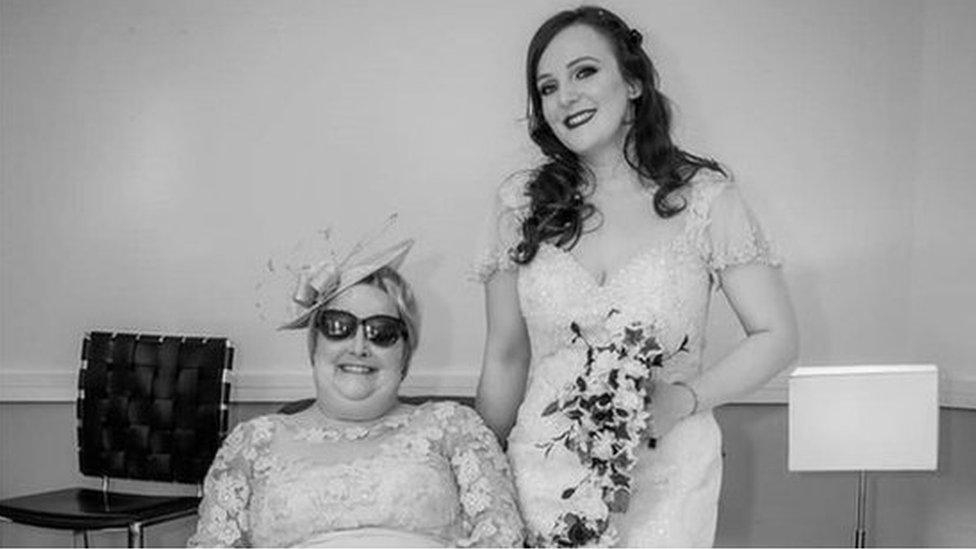End of life home care: Hospice volunteers needed
- Published
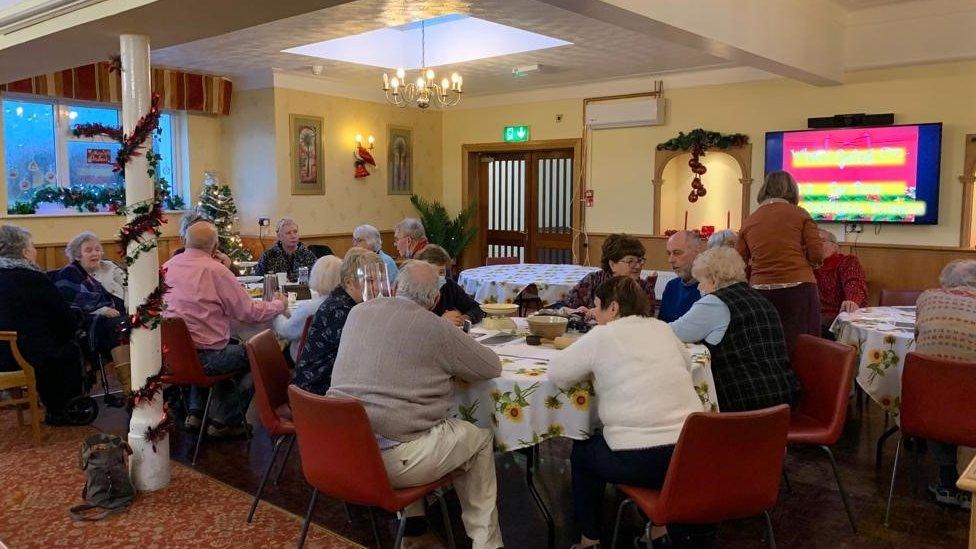
Charity Hospice at Home Aberystwyth Volunteering has opened specific sessions to all to help meet demands
More hospice volunteers are needed because of a lack of professional carers, according to one charity.
Hospice at Home Aberystwyth Volunteering (HAHAV) provides support for people who have an incurable or life-limiting illness.
The charity said it saw a "steadily increasing flow" of requests for its one to one care during the pandemic.
Hywel Dda University Health Board said its specialist services cover hospital, community and care home settings.
Peter Skitt, the health board's county director for Ceredigion said its palliative services team consists of a "consultant, clinical nurse specialists, occupational therapists, art psychotherapy, bereavement care and volunteers". He added that the health board commissions additional services from Marie Curie and Severn Hospice charities to deliver hospice at home care.
HAHAV is a charity with about 100 staff and volunteers at the moment.
It offers some treatments at its premises, a former hotel on the outskirts of Aberystwyth, but also offers help and support groups which are experiencing increasing demand.
Dr Alan Axford is a retired consultant in respiratory medicine and is the chairman of the board of trusties at the charity.
He said 80% of patients who have end of life needs choose to stay at home rather than be hospitalised and "this puts a burden on family and communities and we felt we needed something in Ceredigion to support families in those circumstances".
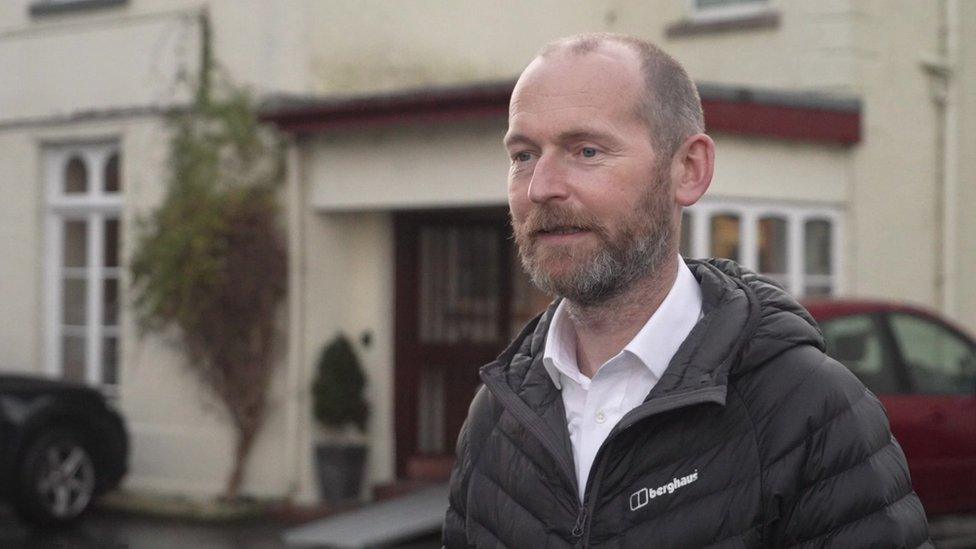
James Dunbar chief operating officer at the charity says they began to get "panicky" at the end of the last lockdown about volunteers
James Dunbar chief operating officer for HAHAV said: "We have a huge reliance on volunteers and we have volunteers all over the county because we provide one-to-one support to people in their houses, for free.
"Towards end of [the] last lockdown we were getting panicky as regards volunteers as we had a steadily increasing flow of referrals, because there is a shortage of carers in the community and people are increasingly turning to us as an extra support."
The charity has opened Parkinson's and dementia cafes to help meet demands.
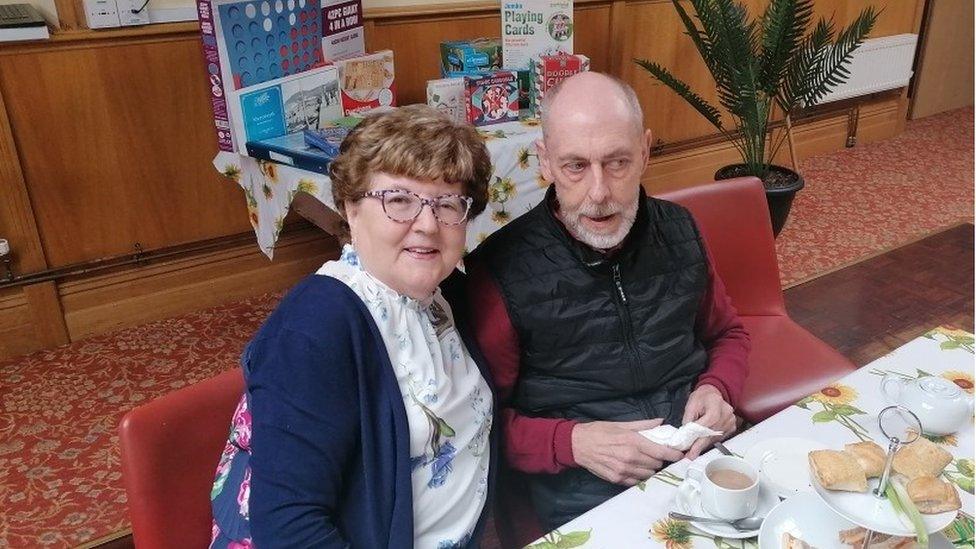
Megan Jones Roberts said volunteer run services offer "vital support" for her and her husband
Megan Jones Roberts cares for her husband Pete and said attending the cafes offers "vital support".
She said: "The challenges are enormous at the moment due to Covid in the last 18 months.
'Forget your troubles for a few hours'
"It's important to come here and forget your troubles for a few hours and with the situation with Covid, we haven't been able to go out as often but coming here we can share our thoughts and troubles and it is important to have a place to come and do that."
Mark Mainwaring's wife Susan has MS but attends the dementia café on a Wednesday to meet new friends, "get out of the house" and play piano.
He said: "What we found with Susan's illness was that we were stuck in the house quite a bit and don't get chance to socialise a lot and this is a lovely opportunity for her to meet people and for me as well to socialise a bit.
"It is great that the centre is extending and catering for people with other illnesses like MS."
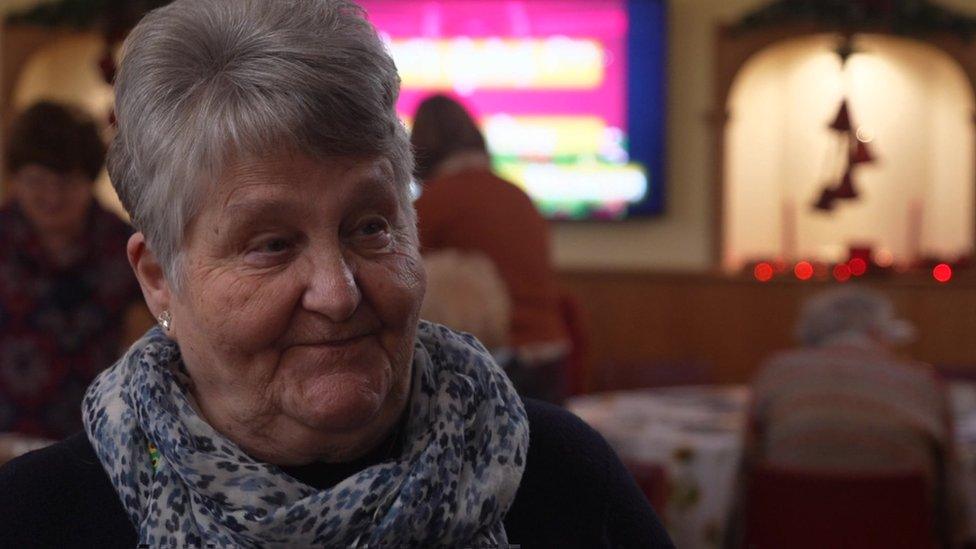
Jenny Ward says volunteering is the highlight of her week
Jenny Ward is a volunteer with HAHAV and said coming to the dementia café is "a highlight of the week" for her.
She said: "It is one of the best things I have ever done and It feels just wonderful.
"As I got older I thought I wouldn't be doing very much but I just love this and people here are so grateful for what they are getting and some of the things we have done are such great fun and people are so grateful."

THE MUSICAL LIFE OF: Stories of the greatest ever Welsh people through song
BRAVO TWO CHARLIES : Police officers just trying to get the job done. And, broadly, failing

Related topics
- Published25 November 2021
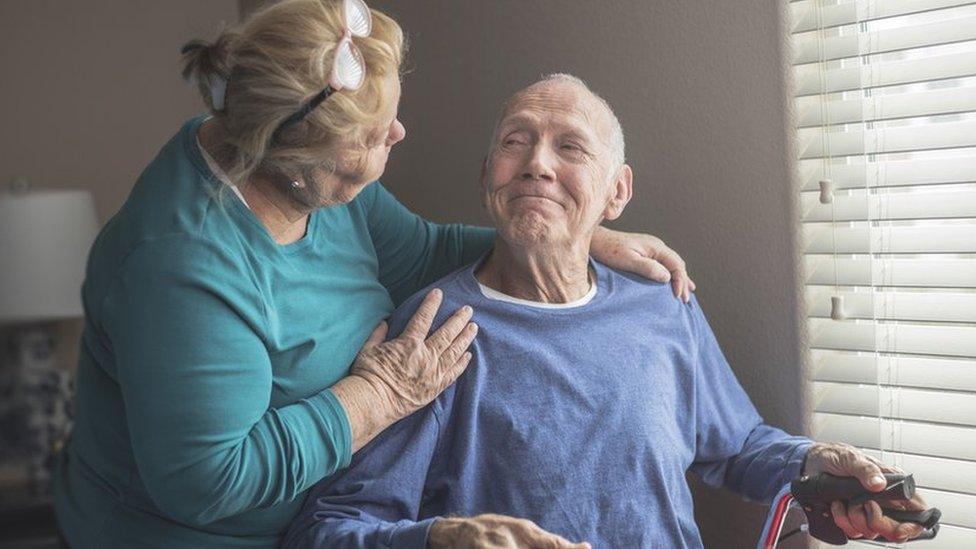
- Published29 April 2021
